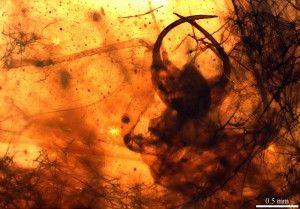Tuesday, October 14, 2014
7:30 PM
Fossil Insects: Learning about the past
MCZ 101, 26 Oxford Street, Harvard University
 Ricardo Pérez-de la Fuente
Ricardo Pérez-de la Fuente
Harvard University
Insects are one of the main biological sources of environmental, ecological, and evolutionary information concerning life on land as archived in the geological record from ca. 400 million years ago. Although the study of extinct insects is challenging, it can be surprisingly similar to the study of extant specimens thanks to the discovery of fossils with exceptional preservation, like amber inclusions, and the use of new techniques. As the legacy of an old paleoentomological tradition that started with the classic works of Samuel H. Scudder, co-founder of the Cambridge Entomological Club and its journal Psyche, the MCZ has one of the premier fossil insect collections worldwide, composed of more than 30,000 specimens and 3,000 types. But, what can we really learn from fossil insects? And to what extent are they reliable? Together we will try to answer these and more questions in the forthcoming talk.
The talk is free and open to the public. The meeting is readily accessible via public transportation. Parking is available in the Oxford Street Garage with advance arrangement, as described here, or (usually but not always) at spaces on nearby streets. Everyone is also welcome to join us for dinner before the talk (beginning at 6:00 PM) at Cambridge Common restaurant, on 1667 Massachusetts Ave.
CEC meetings are held the second Tuesday of the month from October through May. The evening schedule typically includes an informal dinner (6:00 to 7:15 PM) followed by our formal meeting (7:30 – 9:00 PM). The latter begins with club business and is followed by a 50 minute entomology related presentation. Membership is open to amateur and professional entomologists.



